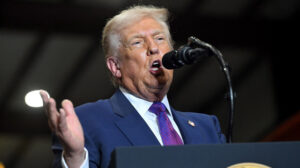An open letter by 104 retired Turkish admirals criticizing a government project for a waterway parallel to the Bosporus — and the ensuing coup clamor in pro-government quarters — has raised the specter of a fresh political escalation in Turkey that might culminate in a purge of officers seen as disloyal to President Recep Tayyip Erdogan.
In the open letter released late April 3 and addressed to the Turkish nation, the retired admirals expressed concern over Ankara’s intention to build an artificial waterway as an alternative to the Bosporus as well as suggestions that Ankara might scrap the 1936 Montreux Convention, which enshrines Turkey’s rights on controlling maritime traffic through the Bosporus and the Dardanelles, the link between the Black Sea and the Mediterranean Sea. The treaty has far-reaching international implications as it guarantees access to civilian ships in peacetime but restricts the passage of military vessels.
In the second part of the letter, the retired admirals said the army should stick to the Turkish republic’s founding principles and “the contemporary route” drawn by its founder, Mustafa Kemal Ataturk. “Otherwise, the Republic of Turkey could face the risk and threat of events [fraught with] crisis and the biggest of dangers to its existence, the examples of which are seen in history,” they warned. The appeal — a tacit reference to secular values — was prompted by the recent leak of images of an on-duty admiral who was purportedly visiting the compounds of an Islamic order wearing religious headgear and a robe over his uniform.
China First Major Economy to Issue Digital Currency (infographic)
Al-Monitor has learned that preparations for the open letter began about a month ago and that several drafts were shared on WhatsApp groups in the past two weeks to collect views and comments. The groups, however, were monitored by the intelligence services. Thus, the authorities were aware of the initiative and could have stopped it by subtly or openly warning the retired admirals. They chose not to do so, which suggests that the open letter was knowingly allowed to go ahead.
Ask me anything
Explore related questions





